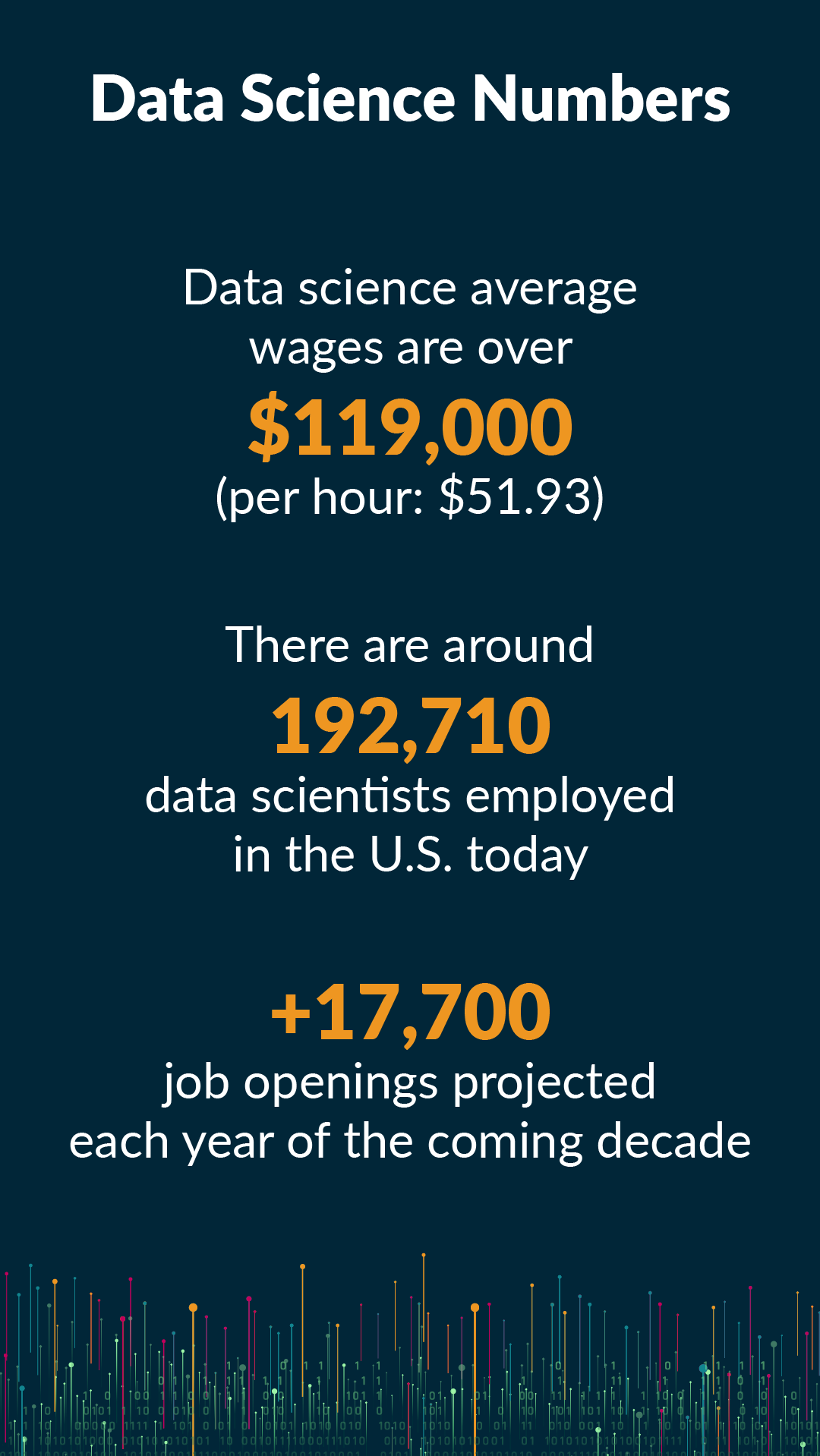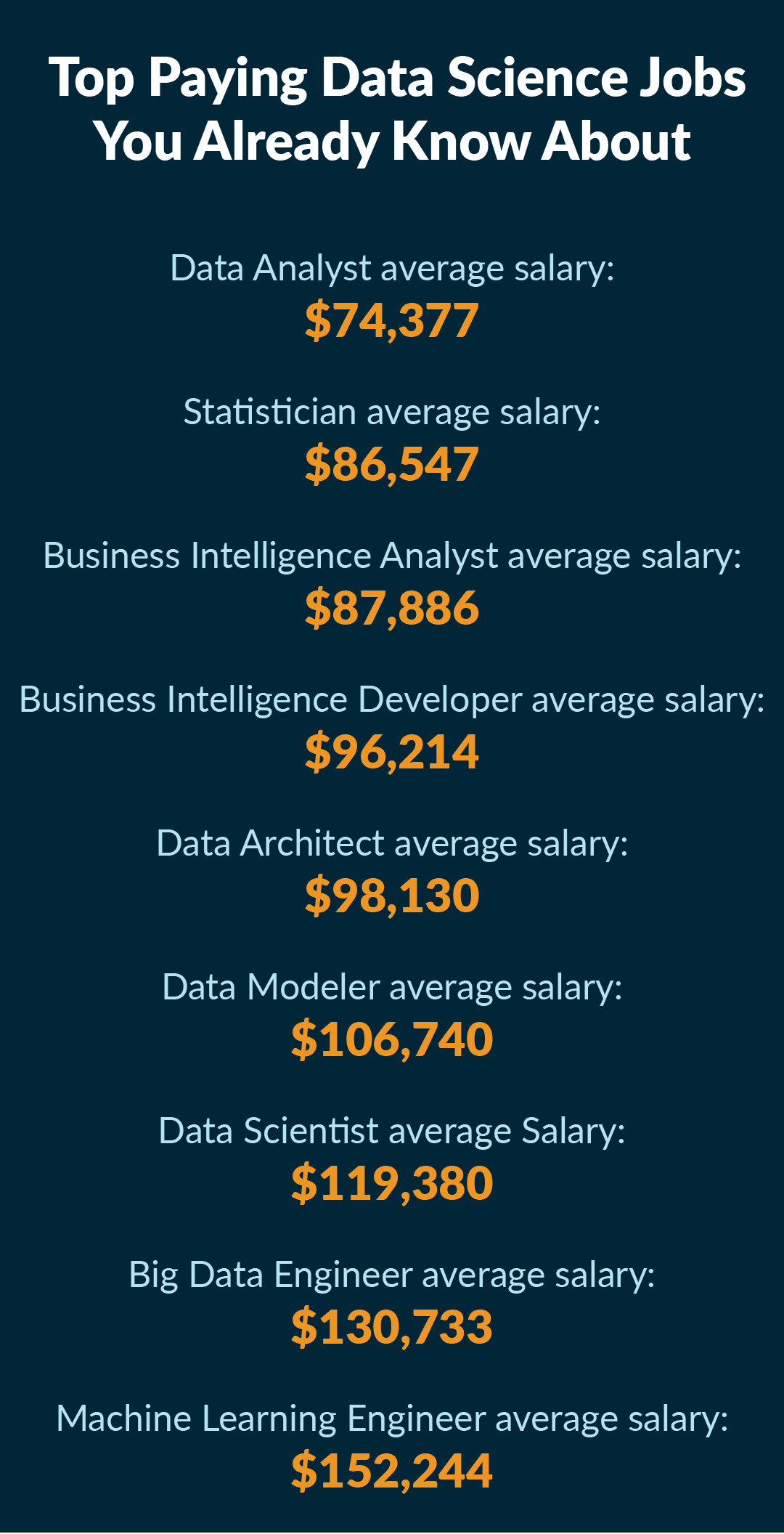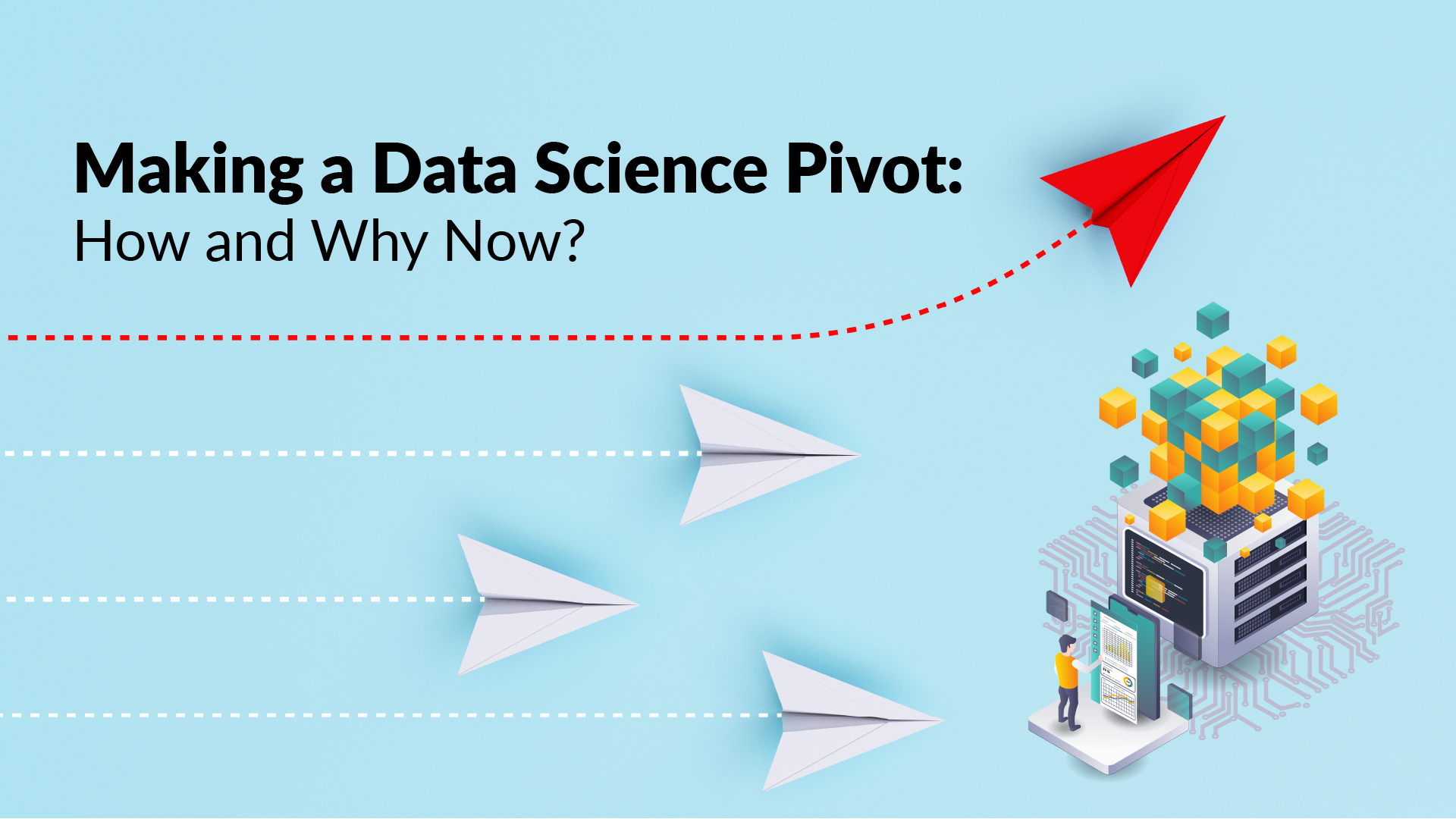Introduction
If you have ever thought about pursuing a career in data science, now would be a great time to make the pivot. The data science job market continues to grow, according to the U.S Bureau of Labor Statistics, which projects a 35% increase in new openings from 2022 to 2032.
But if you don’t have work experience with a data science title, you may need to think outside the box to get your foot in the door. But fear not. With a deeper understanding of the role, the necessary skills, and how to demonstrate them to hiring managers, you can open yourself up to exciting, lucrative opportunities in the tech industry.
Data Science vs. Data Analytics
Before we get into the path toward a successful data science career, let’s clarify the distinction between a role in data science versus data analytics.
While both involve working with data to gain insights, data science focuses on collecting, managing, and building models to predict future outcomes, requiring expertise in programming languages like Python and machine learning techniques, and data analytics centers on analyzing existing data to inform present decisions, often using tools like Excel and SQL.
The Benefits of Pursuing a Data Science Career
Data scientist salaries start with an average of $80,000 to $90,000 and scale up rapidly, with lead data scientists earning anywhere from $150,000 to $200,000, sometimes even higher.
Data scientists also find financial stability thanks to the field’s versatility, with a demand in most industries domestically and abroad. This means that you could potentially work for a bank, in e-commerce, for a healthcare facility, or even for a global conglomerate. Data science’s broad applicability across fields also increases its demand, giving workers the freedom to apply their skills in an area that aligns with values and interests, and to move on to a new area if that appeals to them down the road.
In addition to career durability, a job in data science offers opportunities to solve complex problems, drive innovation, and influence key business decisions through data-driven insights – making the opportunity as engaging as it is lucrative.

Recommended Courses and Essential Skills for Data Scientists
To thrive as a data scientist, you’ll need to develop strong skills in math, statistics, and computer science, with a particular focus on programming languages like Python or R. Coding is a core competency in data science, enabling you to solve problems in various ways. In fact, 78% of job postings in 2023 required Python proficiency.
Equally important are data analysis skills, including data visualization, statistical analysis, A/B testing, and time series analysis. Despite the advent of advanced tools for handling large datasets, Excel remains a critical skill due to its widespread usage.
AI skills are becoming increasingly essential for data scientists. Nearly a quarter of all data science job postings in 2023 required AI expertise, with machine learning being the most sought-after, appearing in 64% of listings. Natural language processing (NLP) skills are also on the rise, featured in 19% of job postings by 2024, up from just 5% in 2023.
Lastly, the most commonly mentioned AI tools for data scientists include PyTorch, TensorFlow, and Scikit-learn. These tools are indispensable for building and deploying AI models.
[To learn more about in-demand data science skills and tools, check out more articles in The PTP Report]

Myth: Only Mathematicians Need Apply
Some who are interested may balk if they feel they have not recently used math skills. Math is important to data careers, but you needn’t be a math genius or have a degree in the field to consider this pivot. The bottom line: if you feel that you can improve your math skills, then you can also consider a pivot to data science.
[To learn more about why you should choose a data science career in 2024, check out this PTP article.]
It’s a common misconception that only those with a strong background in mathematics can pursue a career in data science. While math is important in data careers, you don’t need to be a math genius or have a degree in the field to make this pivot. If you’re willing to improve your math skills, a transition to data science is entirely possible.
Data science is a multidisciplinary field that encompasses much more than coding and computer programming. It includes various aspects such as:
- Behavioral Science
- Bioscience
- Business Analytics
- Computer Science
- Mathematics
- Social Science
- Spatial Science
To strengthen any math skills you may be lacking, explore online resources like open-source programs, tutorials, webinars, and podcasts. These tools can simplify complex math equations, formulas, and programming theories, making them accessible even for beginners.
Platforms like Coursera, edX, and Simplilearn offer certifications in data science, machine learning, and related fields. Recommended certificates include the Google Data Analytics Professional Certificate, Microsoft Certified Data Scientist, and Certified Data Scientist (CDS).
While upskilling or reskilling through these programs is a great start, gaining hands-on experience is crucial. Engage in Kaggle tournaments and other data science challenges to apply what you’ve learned in real-world scenarios.
Data science bootcamps are also an excellent way to sharpen your skills. Practice coding with Python, R, and SQL to become proficient in these programming languages. Ultimately, being a proactive learner is key, as there is always more to learn in the evolving field of data science.
Conclusion
By now, you should have a better understanding of data science and its growing demand across various fields, including education, finance, banking, and marketing. The versatility of data science makes it appealing, allowing you to work in an area that aligns with your interests.
To succeed as a data scientist, it’s essential to hone your skills in math, statistics, coding, programming, data analysis, and AI. Seizing opportunities to work with AI now can give you a significant edge in the field.
While data scientists are well-compensated, it’s important to recognize the dedication required to excel. You can enhance your skills through online resources like certifications, tutoring, and podcasts, and gain hands-on experience through bootcamps focused on project-based learning or Kaggle tournaments.
Ultimately, continuous learning is key in this ever-evolving field—today’s Python could be tomorrow’s Excel!
References
Data Scientists: Occupational Outlook Handbook, U.S Bureau of Labor Statistics
Top 20+ Data Scientist Skills You Need in 2024, Simplilearn
The Data Scientist Job Market in 2024 [Research on 1,000 Job Postings], 365 Data Science
Occupational Employment and Wage Statistics, 15-2051 Data Scientists (2023), U.S Bureau of Labor Statistics
9 Highest-Paying Data Scientist Jobs (With Salaries), Indeed





